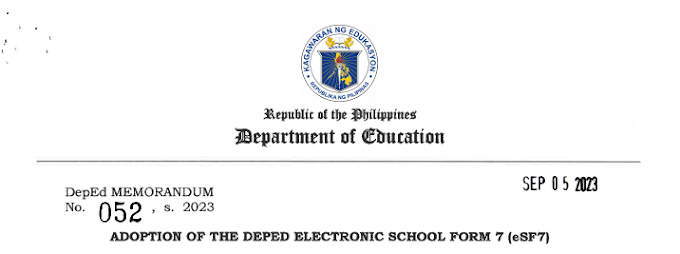COURSE INFORMATION BULLETIN
DOST Free Professional Development Training Course for High School Teachers!
CURIE’S CLASS: NUCLEAR SCIENCE FOR HIGH SCHOOL TEACHERS
Date and Duration
August 23 – September 3, 2021
Course Description
Curie’s class is a professional development training course/workshop for secondary school science teachers. It aims to equip teachers with the ability to bring nuclear science into their classrooms and confidently teach their students about the peaceful and beneficial uses of the atom’s energy.
Participation:
This course is open to science and technology teachers, with preference to Grade 11 and 12 science teachers or those who are handling special science classes.
Application Procedure:
Candidates wishing to apply for this course should follow the steps below:
1. Prepare electronic copies of the following supporting documents:
• Recommendation/Endorsement letter from the university, institution, or company where the applicant is employed
• A recent 1x1 ID photo of the applicant
2. Access the DOST-PNRI Online Course Application Portal
(https://services.pnri.dost.gov.ph/portal/ApplyUser). Fill out application form completely and submit. Any issues/problems related to the Application Portal can be addressed to mis@pnri.dost.gov.ph.
3. Closing date for applications is August 16, 2021
Should online application submission not be possible, candidates may download the nomination form for the training course from the PNRI website (http://bit.ly/NTCCourseApplicationForm) and email the completed form and the supporting documents to ntc@pnri.dost.gov.ph.
Successful applicants will be notified by email 3 – 5 working days after the closing date. Due to the volume of applications the center receives, no notification will be sent to applicants who will not be accepted to the training course. For more details on how to apply: https://bit.ly/PNRI-Course-Application.
Administrative Arrangements:
Participation to the course is free of charge. However, the participants should cover all expenses (e.g., web camera, headset, software, computer, Internet connection, studio rental, etc.) necessary to participate in the online course. In addition, the organizers do not provide the participants with any auxiliary devices (e.g., CD, USB flash drive, etc.). It is clearly understood that each organization, in recommending/endorsing the participants, undertakes the responsibility for such coverage including any special arrangements related to the participant’s work schedule/load for the duration of the training course.
It is recommended that participants prepare a place (e.g. office, house, etc.) for the online course, including a web camera, headset, software, computer, Internet connection, etc.
Nature and Scope of the Course:
The workshop will run for 2 weeks, with 8 sessions (including the opening and closing programs). Each session is designed for a 4-hour engagement with the course materials. The sessions will be rendered as a combination of pre-recorded (asynchronous) and live (synchronous) lectures. The course will be facilitated through an online learning management system.
For the pre-recoded sessions, a dedicated time for interaction of participants with the course lecturers/facilitators (Q&A Sessions) will be scheduled from 11 AM – 12 Noon for topics that are scheduled in the morning and 3 PM – 4 PM for topics that are scheduled in the afternoon. All Live sessions will include Q&A sessions right after the presentation. This will be facilitated through the LMS’s conference feature such as Zoom, MS Teams, or Google Meet. All live sessions will be recorded and will be made available to participants for the duration of the training course. Alternative activities will be conducted in place of hands-on exercises or experiments.
Topics to be Covered:
- Structure of the Atom
- Radiation and Radioactivity
- Nuclear Transformations
- Radioactivity and the Environment
- Interaction of Radiation with Matter
- Fission, Fusion, and Nuclear Reactors
- Risk and Safety of Radioactive Materials
- Applications of nuclear science in agriculture, health and medicine, energy, and industry
Activities/Exercises/Experiments:
- The Nuclide Chart
- Estimating Annual Dose
- Background Radiation Measurements
- Half life 5. Cloud Chamber Experiment
- Time, Distance and Shielding Experiments
- Radiosensitivity Experiments
- Tour of PNRI facilities (Virtual)
- Technical visit to other nuclear facilities (Virtual)



![SLMs for Quarter 1 - Quarter 4 - [Available for Download]](https://blogger.googleusercontent.com/img/b/R29vZ2xl/AVvXsEiZKSQtCDRXVs4RTJFjtMpR67iw_g9EVBBcK82LSyXQVwGPufhicWCrcXb14k_MCTa4r7C-E-d5OPXScHcX_4iNiuzpTnygCDce2EQqd3vYo1A2pB94_Ttpmukgx55G2ip8mfyi4T-wosE/w680/compressed.png)

0 Comments